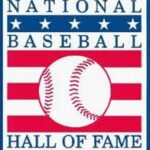Joe Cowley of the Chicago Sun-Times is a terrific baseball writer, and covers the White Sox with a thoroughness, energy and enthusiasm you just don't see much out of beat writers these days.
But his recent rant about newly elected Roberto Alomar's failure to get into baseball's Hall of Fame on the first ballot was at best, off base, and at worst, flat out wrong.
Roberto Alomar was a great 2B, one of the best I've ever seen. But he was not a first ballot Hall of Famer, a privilege that has always been -- and always should be -- afforded to only the greatest of the greats; men who have honored the game at the highest level both on and off the field.
Alomar forfeited that privilege on a September night in 1996 when chose to spit in the face of umpire John Hirschbeck. I wrote about this at greater length last year, so I won't belabor it again.
But c'mon, he didn't just swear at Hirschbeck. Didn't just get into his lineage; you know, talk about his mother and all. Nor did he simply smack him in the face.
Instead, Alomar spit on the man. Right between the eyes.
Not only is spitting in the face of another human being the queen mother of all f**k you's, it is just about the most disrespectful thing one man can to do to another, short of taking his life. And, frankly, even that's open for debate.
Yeah, I know Alomar later apologized. And yeah, I know Hirschbeck accepted his apology and asked the baseball world to move on.
But never forget, Alomar's apology only came after the level of outrage from the media and baseball fans across the country grew to such a level that he, quite literally, had no choice in the matter.
But what bothers me most about the incident today is all the revisionist history now being applied to it. Because what certain people, including Cowley, apparently forget is that day following the spitting incident, after the passion and the anger had subsided, Alomar did something just as unforgivable, if not more so.
Rather than taking responsibility for his actions of the night before, apologizing right away, and showing some level of contrition for what he had done, he chose to compound the problem. He began rationalizing why he spit on Hirschbeck by saying he was not the same umpire he'd been before a particular tragedy struck.
[pullquote]What people forget is that day following the spitting incident, Alomar did something just as unforgivable, if not more so.[/pullquote] Said Alomar: "I used to respect him a lot. He had problems with his family when his son died -- I know that's something real tough in life -- but after that he just changed‚ personality-wise. He just got real bitter."
Three years prior, Hirschbeck had lost his 8-year old son to a rare genetic disorder that had attacked his adrenal system and eventually his brain. What's more, by September of 1996 Hirschbeck had learned that a second son had contracted the exact same genetically transmitted disease.
 Hirschbeck was so incensed when he heard about what Alomar had told the baseball writers that he immediately charged into the Oriole clubhouse, where he had to be restrained.
Hirschbeck was so incensed when he heard about what Alomar had told the baseball writers that he immediately charged into the Oriole clubhouse, where he had to be restrained.
A lot of us still wish that those who held him back had been a little slower on the trigger.
For his words and actions, Roberto Alomar received a five-game suspension and a stiff fine from the commissioner's office. But his real penalty would come 13 years later, his first year of Hall of Fame eligibility, at the hands of the Baseball Writers Association of America.
So what if Alomar didn't get into the Hall of Fame on the first ballot? So what if Hall of Fame numbers alone didn't allow him to simply coast into the Hall of Fame, much the way he seemingly coasted through long stretches of his career?
He's in the Hall of Fame. Let it go.
That he didn't get in on the first ballot doesn't mean the system is broken. It means it works.
You want to make the Hall of Fame just about the numbers? Then take the human element out of it altogether.
Turn the voting over to the accountants. Turn it over to the computer geeks. Turn it over to the sabermaticians.
Who knows? If you play your cards right, you just might end up with the MLB equivalent of the BCS.
Look, first ballot Hall of Famers don't play hard only when the mood strikes them. They don't bounce from team to team, burning one bridge after another along the way, while leaving so many people wanting more.
And most of all, they don't spit in the face of an umpire -- especially one who's just suffered an unspeakable tragedy -- and then stand there and try to tell us the guy asked for it.
